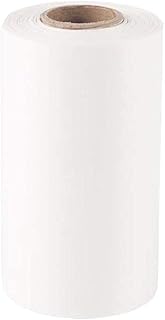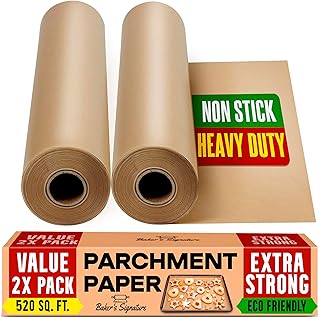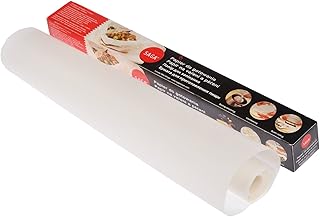For many, parchment paper is an essential tool in the kitchen, offering a versatile and convenient way to enhance the cooking and baking experience. Unlike aluminum foil, parchment paper provides a nonstick surface that is ideal for a variety of culinary tasks. Discovering the benefits of parchment paper can revolutionize your kitchen routine and elevate your dishes to a new level.
Renowned chefs and home bakers alike have embraced the versatility of parchment paper in their culinary endeavors. From lining baking sheets to creating intricate baking structures, parchment paper has become a staple in modern kitchens. Its ability to prevent sticking and burning makes it an invaluable asset for both amateur and professional cooks.
When it comes to selecting the right parchment paper for your needs, there are various options available on the market. Pre-cut parchment liners, such as half sheets and full sheets, offer convenience and practicality for everyday baking tasks. Additionally, specialized parchment rounds cater to specific baking requirements, ensuring a perfect fit for round cake pans and other circular bakeware.
While premium parchment paper brands may come at a higher price point, their quality and performance often justify the investment. Brands like King Arthur Baking offer professional-grade parchment with enhanced features like a light silicone coating for superior nonstick properties. However, more budget-friendly options like Reynolds parchment sheets provide a cost-effective alternative without compromising on quality.
One of the key advantages of using parchment paper is its ability to streamline the cooking process by eliminating the need for greasing pans. While parchment paper is generally nonstick, greasing it can be beneficial for particularly sticky recipes or when aiming for a crispy texture on certain dishes. Understanding when to grease parchment paper can enhance your cooking results and prevent any mishaps in the kitchen.
In baking, parchment paper serves as a protective barrier that prevents recipes from sticking to the pan or burning during the baking process. Beyond its nonstick properties, parchment paper enables creative baking techniques, such as the “criss-cross” method popularized by renowned bakers like Mary Berry. This innovative approach involves strategically placing parchment strips in baking pans to facilitate easy removal of baked goods.
For environmentally conscious cooks, reusing parchment paper can be a sustainable practice that reduces waste and saves resources. By carefully inspecting and cleaning parchment after each use, you can extend its lifespan and maximize its utility in the kitchen. However, parchment paper that has been significantly discolored or damaged during baking may not be suitable for reuse.
While parchment paper is a versatile kitchen essential, there are instances where aluminum foil may be more suitable, especially in high-temperature cooking scenarios. Aluminum foil offers robustness and durability, making it ideal for sealing in moisture and preventing leaks. When cooking dishes that require containment of fats or liquids, aluminum foil can provide a reliable alternative to parchment paper.
Ultimately, stocking up on parchment paper can enhance your culinary repertoire and simplify your cooking process. Whether you’re a seasoned chef or a home baker, incorporating parchment paper into your kitchen routine can unlock a world of possibilities and elevate your dishes to new heights.
📰 Related Articles
- Scotland’s Culinary Excellence: A Global Showcase of Quality
- Zurich Rock ‘n’ Roll Madrid Marathon: Gold Label Excellence
- Whaline 24 Sheet Patriotic Paper: Ideal for Crafting Enthusiasts
- Wedding Websites: The Modern Essential for Couples and Guests
- Waste Paper Recycling Market Growth Driven by Sustainability Trends






